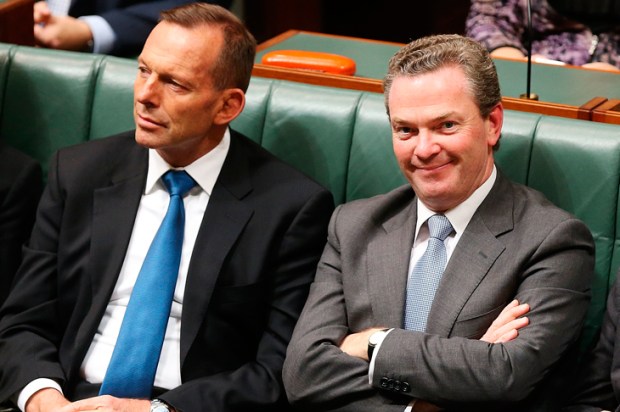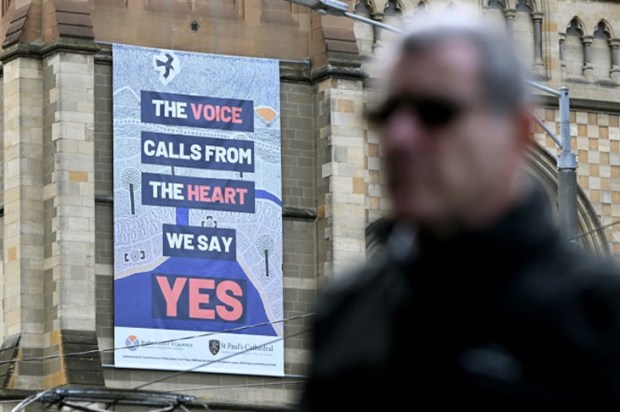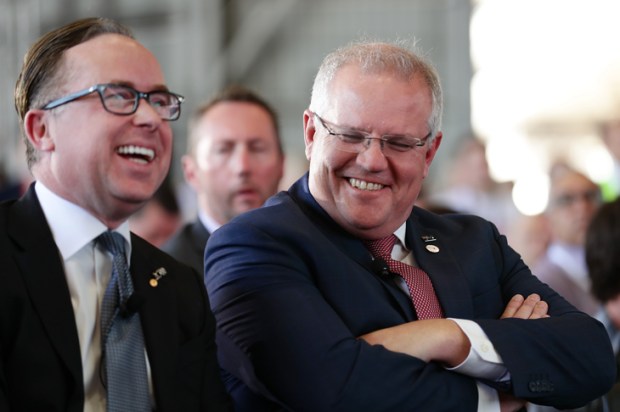The Human Rights Commission must go
Described by its leading victim, Bill Leak, as a ‘rogue totalitarian unit’, the Human Rights Commission is an ugly stain on our democracy. Tony Abbott is right; it must go. The long and expensive harassment of those entirely innocent QUT students, the gagging of Andrew Bolt and the pursuit of Leak are only the tip of the iceberg. Underneath, the chilling of free speech has been spreading, like some plague bacillus, into the editorial offices and work places of the nation. Meanwhile, serious racism continues with impunity, with synagogues and Jewish kindergartens forced to operate behind high security and Australians forced out of the ghettos.
Activated now only by race and minority religion (principally Islam), Labor is planning a bewildering range of triggers under section 18C of the Racial Discrimination Act to control speech about sex, age, sexual preference, gender fluidity, disability, and same-sex marriage. Self-selected leaders of identity ‘communities’, real and fictional, will be thus empowered, with Labor anticipating rewards at the polls.
Labor is consistent, having spectacularly tried to control the press recently. Unlike Abbott’s welcome call to stop funding the HRC, the Turnbull government’s belated minimalist reform to 18C shows a Coalition in lockstep with the Left. Its new test of harassment, according to the standards of the reasonable person, will still be decided by a judge. Knowing what most defamation judges think is reasonable editorial behaviour, serious journalists will be especially fearful; without a jury, rulings similar to that in the Bolt case can be expected.
Apart from introducing juries, as Neil Brown proposed here, the Keating government’s sneaky extension of 18C to Islam must go. Why should jokes about Halal food, or protests about building mosques be actionable but not a photograph of a crucifix in urine?
The inclusion of minority religions was effected not by the words of 18C, but by an Explanatory Memorandum, an obscure device containing riding orders to the judges. If the politicians didn’t read this and relied only on what the minister said in his second reading speech, they would have been in the dark. He neglected to reveal that Islam was covered too.
The Explanatory Memorandum says common descent is not necessary to share an ‘ethnic origin’, a synonym for ‘race’ in 18C. Sharing some other characteristic, such as a religion, is enough, provided it is a minority religion. The Muslim religion is mentioned, not so surprising with Labor having already demonstrated its obsession with the Muslim vote by going so far as to remove their Minister for Immigration when he was about to do his duty and deport the imam Sheikh Taj El-Din Hamid Hilaly. If the politicians didn’t read the Explanatory Memorandum, the judges did, including Justice Bromberg in the Bolt case. As did the ACT Human Rights Commissioner in a case concerning protests about the building of a mosque.david flint
The fact is that 18C, the RDA and the formation of the HRC are not supported by the text of the Constitution as understood by a reasonable person at the time it was adopted or amended. The contrasting claim that the Constitution is a ‘living, breathing document’, therefore meaning whatever the judges say it means, is an invention of the American elites and was rejected in the recent presidential election.
The Federal Parliament is a parliament of strictly limited powers. The founders and the people intended that all powers not listed in the Constitution are for the states and the people. The one federal power about race is to make laws for the ‘people of any race for whom it is deemed necessary to make special laws.’ Originally, Aborigines were excluded. But despite Menzies’ warning that giving Canberra power to legislate with respect to the Aboriginal people would achieve nothing but the creation of a bureaucratic monstrosity, the politicians unanimously argued in the successful 1967 referendum that doing this would greatly benefit the Aboriginal people. It didn’t; the result is precisely the disaster Menzies predicted. Now the elites have decided on yet another silver bullet, ‘constitutional recognition’. They’re also calling for the repeal of the same race power they so lovingly endorsed in 1967 but which is now so unfashionable.
In any event, the constitutional authority claimed for 18C and the HRC is not the race power. It is the ‘external affairs’ power, despite the fact that this was never intended to be used as authority to legislate in areas reserved to the states and the people. However, in a series of cases, the High Court has gradually ratcheted up the power until it now means that whenever the government ratifies some treaty on some matter, Canberra has the right to legislate for this, even in strictly state matters. As the former Chief Justice Sir Harry Gibbs warned, this threatens the very basis of federalism. The judges have thus given the politicians the keys to the Constitution without the people ever agreeing or even being asked.
18C and the HRC are examples of what has been a coup to centralise enormous and quite dangerous powers in Canberra. This impacts in many areas of our national life, even in the skyrocketing price of electricity and the continuing campaign against our farmers. By entering into a vast range of treaties under UN auspices, Canberra has been able to stop the states building dams, to turn farms into useless carbon sinks and to take water from our farmers, despite the Constitution guaranteeing them reasonable use of our rivers for conservation and irrigation. At the same time the politicians have performed poorly in fulfilling their core constitutional duties, such as defence and immigration.
The best hope of curing such illegitimate exercises of power, restoring the federation and making the politicians truly accountable is to follow the way we federated.
We should be invited to elect an unpaid convention to review the Constitution, with the guarantee that after the politicians have had an opportunity to comment, their final recommendations be referred to the people.
Got something to add? Join the discussion and comment below.
Get 10 issues for just $10
Subscribe to The Spectator Australia today for the next 10 magazine issues, plus full online access, for just $10.
You might disagree with half of it, but you’ll enjoy reading all of it. Try your first month for free, then just $2 a week for the remainder of your first year.














Comments
Don't miss out
Join the conversation with other Spectator Australia readers. Subscribe to leave a comment.
SUBSCRIBEAlready a subscriber? Log in